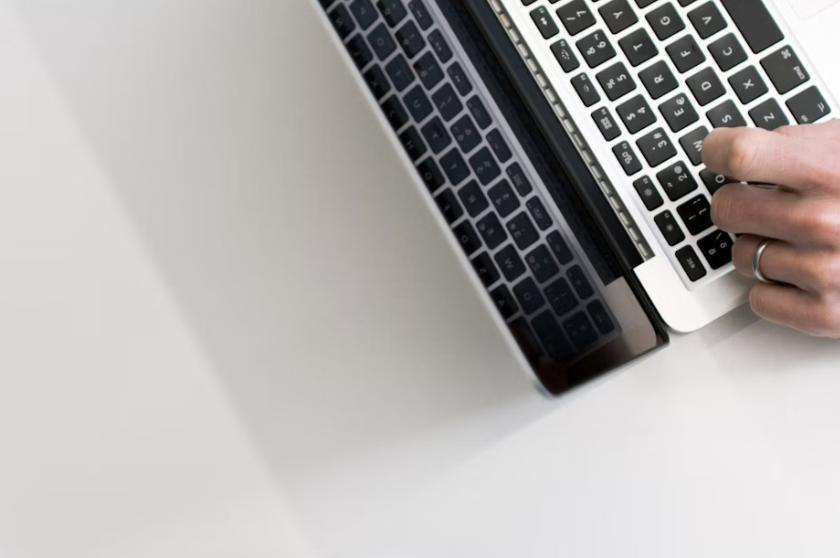How to Stay Calm During an Interview
Understanding and Overcoming Interview Anxiety

Job interviews can be nerve-wracking experiences, often leading to anxiety that can impact performance. However, by identifying your stress triggers and employing strategies to manage anxiety, you can remain calm and focused, showcasing your best self to potential employers. This comprehensive guide provides actionable tips for every stage of the interview process.
Identifying Your Stress Triggers
Understanding what specifically causes your interview anxiety is the first step towards managing it. Common triggers include fear of unexpected questions, concern over making a good impression, or the high stakes of the job opportunity. Once identified, you can work on strategies to address these concerns directly.
Spotting Early Signs of Anxiety
Recognizing the early signs of anxiety, such as increased heart rate, sweating, or negative thoughts, can help you take immediate action to prevent it from escalating. This awareness allows you to implement calming techniques before the symptoms become overwhelming.
Pre-Interview Preparation
Thorough preparation is key to reducing interview anxiety. Research the company, understand the role you're applying for, and practice answering common interview questions. This preparation helps build confidence and reduces the fear of the unknown.
Developing a Pre-Interview Routine
Establish a pre-interview routine that helps you relax and feel prepared. This might include reviewing your notes, choosing your outfit the night before, and ensuring you have a healthy breakfast. A consistent routine can help alleviate anxiety and set a positive tone for the day. Start the day like you mean it!
Crafting Your Interview Narrative
Prepare a compelling personal narrative that highlights your strengths, experiences, and achievements. Having this narrative ready can make answering behavioral interview questions feel more natural and less stressful, giving you a sense of control over the conversation.
Techniques for Calming Nerves
Worrying that you might ramble or blank on a topic can be a self-fulfilling prophecy if you go into an interview with such worries front and center. Practical techniques such as deep breathing, meditation, or listening to calming music can help soothe nerves before the interview. Find what works best for you and make it a part of your pre-interview routine.
Leveraging Visualization Techniques
Visualization is a powerful tool for reducing anxiety. Imagine yourself succeeding in the interview, answering questions confidently, and making a strong impression. This mental rehearsal can boost your confidence and reduce stress.
Breathing Techniques for Instant Relief
Breath control is a quick and effective way to manage anxiety. Practice slow, deep breathing exercises to calm your nervous system and focus your mind. These techniques can be used anytime you feel anxiety creeping in.
The Power of Positive Thinking
Adopting a positive mindset can significantly impact your interview performance. Focus on your strengths and achievements, and visualize a successful outcome. Positive thinking can boost confidence and reduce negative emotions.
Counteracting Negative Thoughts
Learn to recognize and challenge negative thoughts that arise during the interview process. Replace them with positive affirmations about your abilities and worth. This can help shift your focus away from fear and towards your strengths.
Creating a Positive Feedback Loop
Positive thoughts lead to positive outcomes, which reinforce positive thinking. This positive feedback loop can increase your confidence and reduce anxiety over time. Start by acknowledging small successes and building on them. Even when it seems like there are few successes in your life, practicing active gratitude for all the little things in life can help give you a positive foundation to build on.
Body Language Tips for Confidence
Your body language speaks volumes. Practice maintaining good posture, making eye contact, and using gestures that convey confidence. These non-verbal cues can also influence your own feelings, making you feel more confident.
Practical Exercises for Posture and Presence
Exercises like power posing can help improve your posture and presence. Standing in a posture of confidence, even when you don't feel confident, can affect testosterone and cortisol levels in the brain, making you feel more in control.
During the Interview: Staying Centered and Focused
Stay present and focused during the interview by actively listening to the interviewer and engaging in the conversation. This mindfulness can help you stay calm and respond more thoughtfully to questions.
Harnessing the Pause: Controlling the Conversation Pace
Don't be afraid to take a moment to think before answering a question. Using pauses effectively can help you control the pace of the conversation, giving you time to gather your thoughts and respond clearly.
Maintaining Composure with Mindful Listening

Practicing mindful listening helps you stay engaged with the interviewer and reduces the likelihood of misunderstanding questions. This focus can also help keep anxiety at bay, allowing you to remain composed throughout.
Post-Interview Reflection
After the interview, take time to reflect on the experience. Consider what went well and what could be improved for next time. This reflection is an essential part of learning and growth, helping you prepare for future interviews.
Learning from Each Interview Experience

Every interview is a learning opportunity. Regardless of the outcome, there is always something valuable to be gained. Embrace each experience as a chance to improve and build confidence, reducing anxiety over time.
By implementing these strategies, you can navigate the interview process more calmly and confidently, allowing your true potential to shine through. Remember, you are interviewing them too!
One size doesn't fit all, and you should take what advice seems to work best for you. Don't let the deluge of advice you may find add to your anxieties. Tune out the unimportant when the interview comes, and remember that your one job in your interview is to convey that you are the one for the job.
